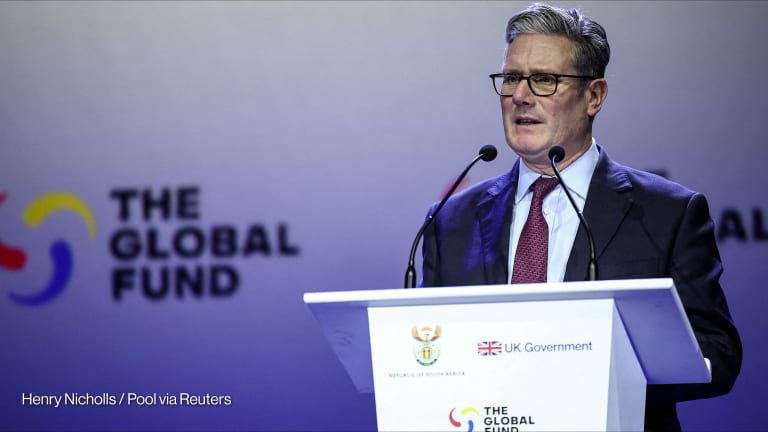
The Global Fund to Fights AIDS, Tuberculosis and Malaria’s ambitious reforms appear to have paid off, as donor pledges for the organization reach $12 billion for the next three years — an accomplishment that has been shadowed by serious corruption allegation.
The amount fall short of the Global Fund’s goal of $15 billion for its just-concluded fourth replenishment meeting in Washington, D.C., but the global health community is already hailing the success of the event, given that the figure pledged exceeded that of previous years. The United States, for one, promised up to $5 billion for 2014-2016.
READ:The buzz on Global Fund replenishment: Our top 10 picks
Just over a year ago, the situation was very different. The organization had to cancel its Grant 11 round due to lack of funds, and a number of donors suspended some pledges over corruption issues.
Now the picture is quite different — or is it?
Contractors under scrutiny
On the first day of the conference, the BBC aired a documentary revealing alleged fraudulent activities among Global Fund contractors in eligible countries such as Cambodia and Burkina Faso. The program claimed that several of the fund’s reports on this issue have been watered down, and a number of them have yet to be made public a year after the investigations ended.
The Global Fund addressed the allegations, noting that in a statement that only “evidence that can be confirmed as fact is included in the final version” and that it doesn’t comment on open probes.
But transparency advocates underscored the importance of traceability in aid spending. The Global Fund scored “good” in Publish What You Fund’s aid transparency index released in October, although the latter organization pointed out there is room for improvement on financial transactions.
The issue now warrants the Global Fund to “ensure their contractors are as transparent as they are,” Rachel Rank, deputy director of Publish What You Fund, told Devex. Rank encouraged these contractors to publish their data with delivery partners via the International Aid Transparency Initiative format — an issue aid groups have also been raising with the U.K. Department for International Development.
Publish What You Fund however declined to comment on whether the incident now calls for Global Fund to hire external investigators, as opposed to the current set-up, under which its investigators report to the board of directors.
Donors unfazed
Despite the media fanfare, the corruption allegations seemed to have left donors unfazed, although this has yet to be tested by the time they are expected to make their aid disbursements in the coming years.
In any case, it’s clear that the Global Fund still has to cement a number of its reform plans, including the full implementation of its new funding model in 2014, and ensure that the measures it plans to take would maximize value for money.
At the same time, the organization will need to pay very close attention to not leaving anyone behind, a common concern for several aid groups, especially regarding a a newly proposed tiered pricing system for health commodities that they argue could make medicines and essential health supplies even more inaccessible for the poor in middle-income countries.
Will the Global Fund address these issues in time to convince donors to deliver on their pledges? Let’s wait and see.
Read more development aid news online, and subscribe to The Development Newswire to receive top international development headlines from the world’s leading donors, news sources and opinion leaders — emailed to you FREE every business day.








